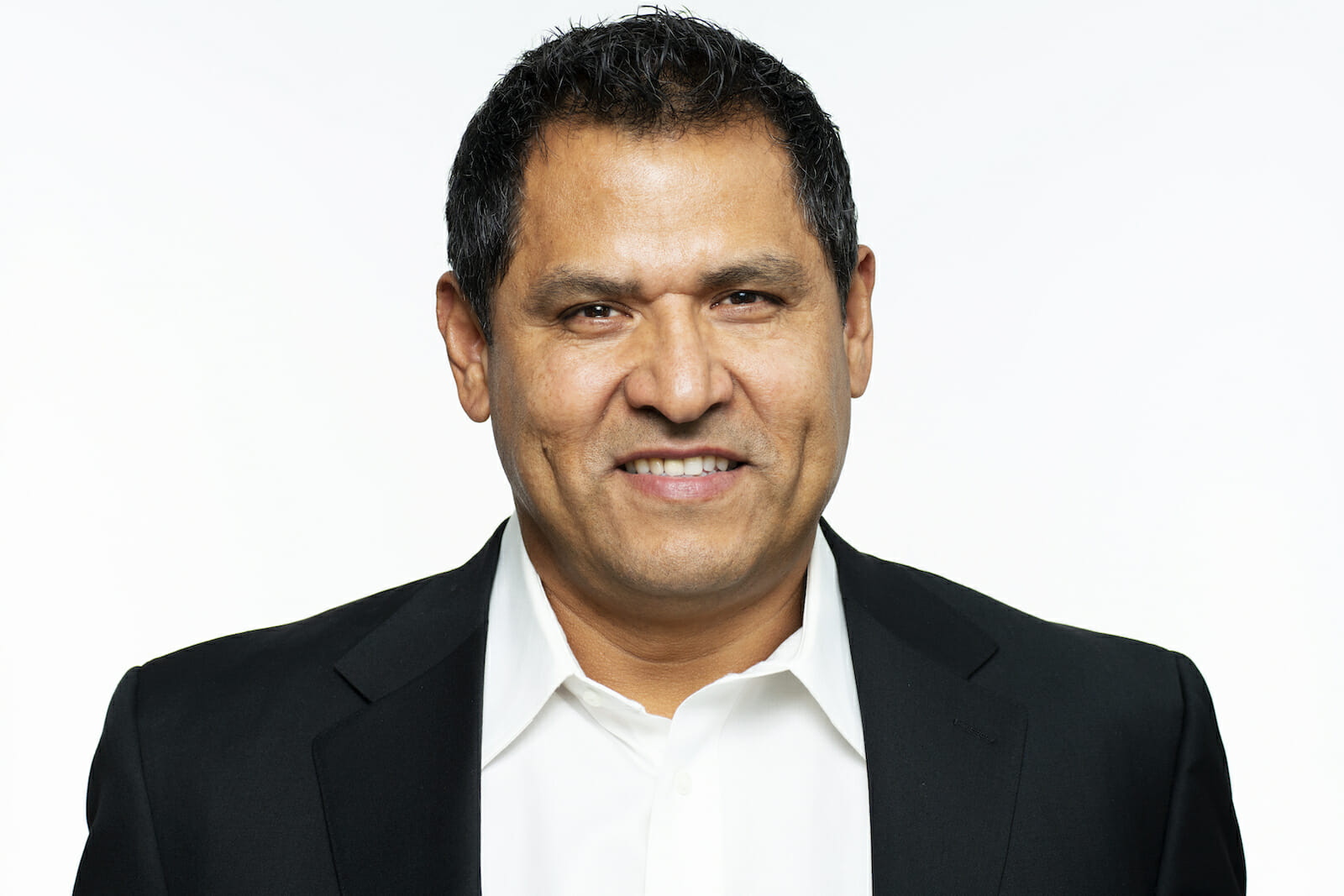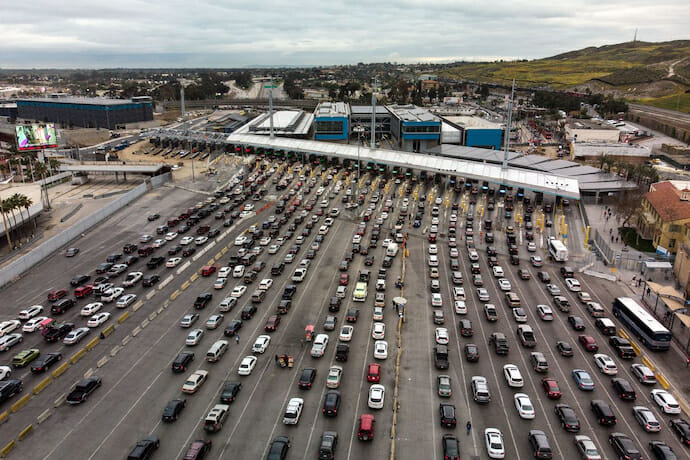
Q&A with Lazaro ‘Laz’ Ayala, Author of ‘Illegal’
Lazaro ‘Laz’ Ayala is a naturalized U.S. citizen from El Salvador, an entrepreneur, philanthropist, filmmaker, and author. He is the author and producer of the newly released book and film, Illegal.
Laz came to the U.S. fleeing the violence of the Salvadoran Civil War in 1981, just days after the December 11th massacre during which the Salvadoran Army wiped out the village of El Mozote, killing 800 civilians.
Today, Laz is a successful entrepreneur in Ashland, Oregon. He owns several companies, has numerous rental properties, and is involved in multi-million-dollar real estate development projects in the area. These accomplishments have allowed Laz to give back to his communities in Southern Oregon and El Salvador. Over the years, he has built a soccer field for a local charter school and established a scholarship program for DACA students at Southern Oregon University. In his hometown of San Ildefonso, Laz has led projects to provide clean water and safe, affordable, fuel-efficient cookstoves to replace dangerous open cooking fires.
Our conversation, conducted via email and edited only for content, is below.
Hello Lazaro. Particularly since the 2016 presidential election, immigration, both legal and illegal, has been a contentious issue. From your perspective what are the opponents of immigration reform missing?
Well, I do not believe there is opposition to immigration reform per se. The messaging from both Republicans and Democrats favors “comprehensive immigration reform.” The question is what does comprehensive immigration reform mean and is it feasible? Is it achievable in a divided political system that itself is broken? Is it possible in a political climate where politicians cannot even agree on science or the time of the day, much less fixing the complex aspects of immigration policies in one piece of legislation? If comprehensive immigration reform means what the term implies—an all-inclusive piece of legislation that fixes everything that is broken, then perhaps what is missing is honesty. Politicians must be honest with the American people about the fact that comprehensive immigration reform simply cannot be achieved in one piece of legislation. At least, not in the political climate we find ourselves in today.
The issues are too many and far too complex. For this reason, I believe the term “comprehensive immigration reform” is nothing less than a deceitful political term for “do nothing.” For instance, let’s talk about one aspect of comprehensive immigration reform—path to citizenship for the millions of undocumented immigrants and DACA recipients. Democrats uncompromisingly argue for a path to citizenship while Republicans uncompromisingly reject it. This stalemate is as far as the conversation gets.
This back and forth over comprehensive immigration reform and the path to citizenship has been going on for over 20 years without any meaningful results. In the meantime, entire industries, businesses, and workers are left to suffer the consequences of the inaction of politicians. I believe that comprehensive immigration reform is another term for doing nothing and the path to citizenship is another term for a path to nowhere. Like an onion, the topic of immigration has many layers and each layer must be peeled one at a time. What is missing is honesty and a real desire to fix this broken system piece by piece. This will not happen until the American people say enough is enough, hold legislators accountable, and demand real common-sense legislation.
When did immigration become such an issue as it relates to only Mexicans and Latin Americans? There are ‘illegal immigrants’ in America from other countries. President Trump didn’t describe immigrants from Sweden as “They’re bringing drugs. They’re bringing crime. They’re rapists. And some, I assume, are good people.”
In the 40 years that I have lived here never have I seen the politicization of immigrants to the degree the current administration has. This of course began with the arrival of candidate Trump. Granted, historically immigrants of different nationalities (Irish, Italians, Chinese, Japanese and others) were scapegoated and politicized in the past, but this is the first time in history where the topic has been politicized to intentionally divide the country along racial and party lines.
Has the Trump administration’s immigration crackdown hit your family personally?
While my immediate family has not been directly impacted by current immigration policies (we are all naturalized U.S. citizens), I have several undocumented relatives who have been directly affected. Indirectly, I believe the entire country has been impacted by the division resulting from the politicization of current immigration policies.
How have both Democrats and Republicans exploited undocumented immigrants for their own gains?
Today I believe that politicians want issues, not solutions. Both parties want issues they can exploit for political gain. Comprehensive immigration reform is one of those political wedges used to manipulate voters. Imagine if the political wedges of today (immigration, healthcare, and others) did not exist? What would they use to excite and inflame their base?
Do you envision a more humane immigration system if Joe Biden wins in November?
I do not see Joe Biden or any other politician fixing the problem until the American people demand reforms. I believe that change comes from the bottom up, not top-down. That said, I envision a more humane immigration system if Joe Biden is elected, but I have yet to hear about his immigration platform. I do not expect much in terms of real immigration reform though. Not much changed when Biden was VP to President Obama who left the White House with the nickname “deporter-in-chief” for his tough deportation policies.
 Immigration to America is partly driven by economics. Immigrants come to America to seek better lives. Advocates argue that when economies in Latin America are doing better there is less immigration. Can you touch on this?
Immigration to America is partly driven by economics. Immigrants come to America to seek better lives. Advocates argue that when economies in Latin America are doing better there is less immigration. Can you touch on this?
While this statement is true, we must also recognize that undocumented immigrants come because they know they can be employed once they get here. They know there is a black market for illegal employment that is embedded in our system and enabled by our laws, lack thereof, or lack of enforcement of those laws. If illegal employment is permitted or available, undocumented immigrants will continue to come regardless of the economic conditions in their native countries. This is true not only for undocumented immigrants from Latin America, but also for the millions of undocumented immigrants from Europe and Asia living here today.
Can you touch on your own personal journal from El Salvador through Guatemala and Mexico?
The most vivid memory I have of the 3,000-mile journey by bus and train through Guatemala and Mexico is crossing the U.S./Mexico border in Tijuana. I recall arriving at the smugglers holding place where they gathered a group of 30 or so migrants including my father and older brother. I was 14 years old. We were led to the crossing point by a few smugglers at around midnight in mid-December 1981. I was scared! Once there, they quickly said “corran y sigan a nosotros,” run and follow us. We ran and walked for a few hours across the cold desert until we reached a hiding point before crossing into a holding place in San Diego.
Once there they put the three of us and a Salvadoran migrant woman in the trunk of a car to get us through the last immigration checkpoint in San Diego. I was the smallest and the first one packed into the trunk followed by my brother, father, and the other migrant. The trunk was quickly shut and immediately oxygen was limited. I thought we were all going to die and to make matters worse, I happened to be laying sideways directly over the surface that the exhaust pipe was attached to. Immediately the surface began to warm up! I still remember the burning pain and my father’s comforting words assuring me that it would soon be over.
Can you touch on how the immigration system in America is modern-day slavery?
I refer to the institutionalized illegal employment system in the U.S. as modern-day slavery because it is not only illegal, oppressive, and inhumane, but it is also immoral. We have a system of laws designed to promote human trafficking that lures desperate workers in with illegal employment. Once here they are separated from their families here and abroad, exploited, taxed without representation, dehumanized, criminalized, persecuted, incarcerated, and locked up in cages. If this is not a form of modern-day slavery what is?
Here is how the U.S. State Department defines modern-day slavery: “’Trafficking in persons,’ ‘human trafficking,’ and ‘modern slavery’ are used as umbrella terms to refer to both sex trafficking and compelled labor.”
COVID-19 has hit communities of color particularly hard. Can you touch on this?
Communities of color, but particularly the undocumented community working in essential industries such as agriculture and construction have been hit hard by COVID-19 because those are not only high-risk jobs, but also lack basic protective equipment and enforcement. In addition, these folks do not have access to unemployment benefits or other social programs, so they must take those risks to feed their families. This is just one more example of the suffering of modern-day slaves in the USA.
Do you ever envision returning home to El Salvador?
Do I envision ever returning home to El Salvador? In a way I never left El Salvador; it is in me, it is part of who I am. In the words of Sue Monk Kidd “You can go other places, all right – you can live on the other side of the world, but you can’t ever leave home.” Yes, in moments of nostalgia I envision having a second home in El Salvador where I can spend the last years of my life but the altruistic and dreamer in me won’t let that happen until I have squeezed everything out of life and have completely lived my purpose in life. Only then will I be able to enjoy laying on a hammock by the beach and rest. For now, and the foreseeable future I want to give back to this great country of ours, which with all its imperfections, I proudly call home.
